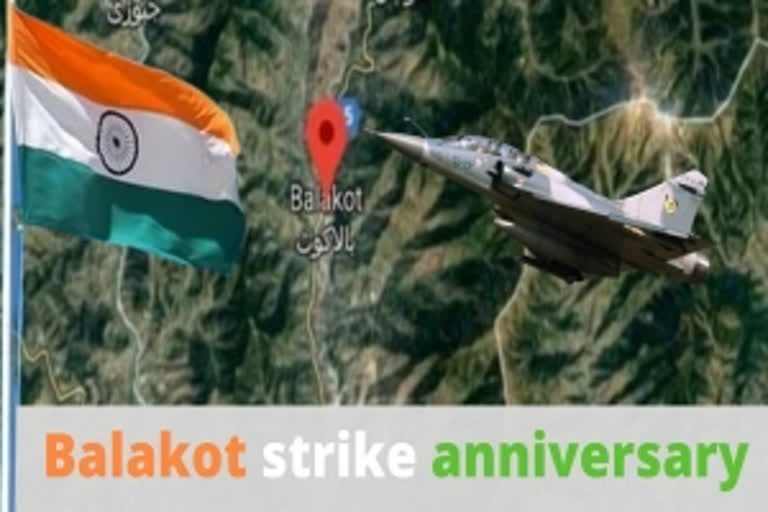New Delhi: It may mean monkey in Hindi and port in Persian, but 'Bandar' for now retired Air Force commander Hari Kumar was the code word for success that incident-filled morning one year ago when Indian jets crossed over to Pakistan to pound a terror camp in Balakot.
It was at 3.55 am on February 26, 2019, when Kumar called then Chief of Air Staff BS Dhanoa to confirm that the top secret Balakot air operation was a major success.
It was also his birthday, Air Marshal (retired) Kumar recalled on the first anniversary of the Balakot strike, which took place 12 days after the February 14 terror attack in Pulwama in which 40 CRPF personnel was killed.
"There was a farewell banquet for me on February 25. In the event the chief asked me about the preparations for the operation. I briefed him about finer details. Then, the chief told me to call him and say 'Bandar' if the operation was successful," Kumar told media in an interview.
Kumar, a key planner of the Balakot strike, was then serving as Air Officer Commanding in Chief (AOC-IN-C) of the Western Air Command which is responsible for protecting India's air space along the Pakistan border.
"At around 3.55 am on February 26, I conveyed to the air chief that it was a 'Bandar'," Kumar remembered.
A fleet of 16 aircraft of the IAF had crossed over to the Pakistani side and attacked a Jaish-e-Mohammad terrorist training camp in Balakot with Spice 2000 bombs to avenge the killing of the CRPF personnel.
Recapping the events leading to the strike, Kumar, who was involved in detailed planning of the top secret operation, said he received broad indication.
"The chief of air staff called me on a secured phone line and asked me whether the Western Command was ready for punitive action and asked me to come for a meeting on February 15," he said.
Kumar said that a bouquet of targets, comprising terrorist training camps, military establishments and infrastructure, was chosen as possible targets for the retaliation and it was left to the government to decide which installation was to be selected.
Read:Don't let CAPF personnel wear combat uniforms: Army to Defence Ministry
"We had to reduce collateral. That meant we could not afford to have civilian casualties like women and children. The other aspect was that we wanted to achieve targets in our first attempts," Kumar said.
Not allowing Pakistan to engage with IAF jets was another consideration, he added.
"When we selected a bouquet of targets, it was left to the government to decide which target they want to select and the timing of the operation," Kumar said.
